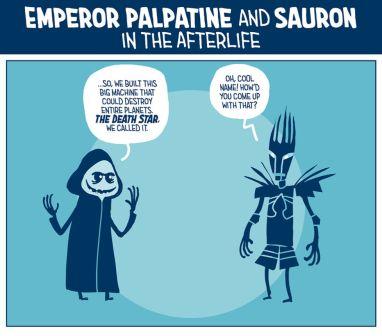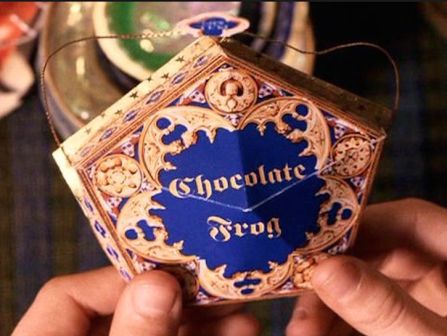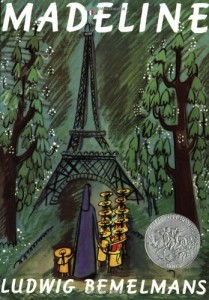(1) What could be more appropriate to continue a discussion launched in yesterday’s Scroll than Jurassic Park: High Heels Edition! Thanks to Cathy for dropping this into the comments.
(2) “Emperor Palpatine and Sauron in the Afterlife” by Steve Ogden. Here is the first frame of the comic —
This crazy comic sprung from a Twitter conversation I was having with Scott King. He said he was considering writing an essay, the events of Star Wars as seen from Emperor Palpatine’s point of view. I said it would be a terrible idea, but really funny, to have a conversation in the afterlife between two dead bad guys, sort of swapping horror stories about how badly everything went for them at the hands of the Good Guys. Scott admitted it was both terrible and funny, and why don’t I go write it then. So I did, and here you have it.
(3) That was a strange experience – reading Alexandra Erin’s “Millennial Pledge: Trouble Edition”, which translates “Trouble in River City” into a bullet-pointed blog post.
(4) Recommended: Ty Templeton’s comic ”What if Bob Kane has created Bat-Man without Bill Finger?”
(5) Most of “The 20 Biggest Bombshells J.K. Rowling’s Dropped Since ‘Harry Potter’ Ended” are less cheerful than —
Chocolate Frogs
Harry, Ron and Hermione all wound up with their own chocolate frog cards, which Ron reported as his “finest hour.”
Harry’s card says that he is “the first and only known wizard to survive the Killing Curse, most famous for the defeat of the most dangerous dark wizard of all time, Lord Voldemort.”
Ron’s card gives him credit for “destroying the Horcruxes and subsequent defeat of Voldemort and revolutionizing the Ministry of Magic.”
On hers, Hermione gets credit for being “the brightest witch of her age” and that she “eradicated pro-pureblood laws” and campaigned for “the rights of non human beings such as house-elves.”
(6) Remember the Star Wars blooper reported by Screen Rant that I posted here the other day? Io9 checked with Mark Hamill who says it never happened.
TOTAL BS! Actually said "There she…" as in "There she is." Dialogue in that scene was dubbed. In-jokes disallowed! https://t.co/nWLmsLsgpw
— Mark Hamill (@MarkHamill) October 13, 2015
Instead of calling Carrie Fisher’s name out, Hamill insists that he started to say “There she is!”—dialogue provided in ADR that was cut short by Leia and Luke’s embrace.
(7) “Make Sure to Check Your Camera Settings” — a funny Flash reference at Cheezburger.
(8) Today In History –
- 1926: A.A. Milne’s Winnie-the-Pooh was published.
- 1947: Capt. Charles E. “Chuck” Yeager pilots the rocket-powered Bell X-1 to a speed of Mach 1.07, becoming the first person to fly faster than the speed of sound.
(9) John ONeill profiled The Complete Short Fiction of Clifford D. Simak, Volumes 1-3 at Black Gate.
The lack of a complete collection of Clifford D. Simak’s short stories has been keenly felt among many old-school fans. So as you can imagine, I was delighted to discover that Open Road Media has undertaken the first comprehensive collection of all of Simak’s short stories — including his science fiction, fantasy, and western fiction. The first three books, I Am Crying All Inside, The Big Front Yard, and The Ghost of a Model T, go on sale later this month.
All three, like all six volumes announced so far, are edited by David W. Wixon, the Executor of Simak’s Literary Estate. Wixon, a close friend of Simak, contributes an introduction to each volume, and short intros to each story, providing a little background on its publishing history and other interesting tidbits.
As a special treat the first volume, I Am Crying All Inside, includes the never-before-published “I Had No Head and My Eyes Were Floating Way Up in the Air,” originally written in 1973 for Harlan Ellison’s famously unpublished anthology Last Dangerous Visions, and finally pried out of Ellison’s unrelenting grip after 42 very long years.
(10) Margaret Hamilton’s pioneering work on NASA computers is covered by Wired in “Her code got humans on the moon – and invented software itself”.
Then, as now, “the guys” dominated tech and engineering. Like female coders in today’s diversity-challenged tech industry, Hamilton was an outlier. It might surprise today’s software makers that one of the founding fathers of their boys’ club was, in fact, a mother—and that should give them pause as they consider why the gender inequality of the Mad Men era persists to this day.
As Hamilton’s career got under way, the software world was on the verge of a giant leap, thanks to the Apollo program launched by John F. Kennedy in 1961. At the MIT Instrumentation Lab where Hamilton worked, she and her colleagues were inventing core ideas in computer programming as they wrote the code for the world’s first portable computer. She became an expert in systems programming and won important technical arguments. “When I first got into it, nobody knew what it was that we were doing. It was like the Wild West. There was no course in it. They didn’t teach it,” Hamilton says.
She’s an unsung heroine of Apollo 8, because she got them home after a fatal input error in the spacecraft somebody at NASA insisted would never happen.
(11) Scientists measured the erosion of terrestrial river rocks to deduce — “Pebbles on Mars Shaped by Ancient Long-Gone Rivers Dozens of Miles Long”.
Using publicly available images of the rounded pebbles on Mars from the Curiosity rover mission, the scientists calculated that those rocks had lost about 20 percent of their volume. When they factored in the reduced Martian gravity, which is only about 40 percent of Earth’s, they estimated that the pebbles had traveled about 30 miles (50 km) from their source, perhaps from the northern rim of Gale Crater.
(12) NASA’s Hubble Space Telescope has been used to produced new maps of Jupiter – the first in a series of annual portraits of the solar system’s outer planets.
New imagery from NASA’s Hubble Space Telescope is revealing details never before seen on Jupiter. High-resolution maps and spinning globes (rendered in the 4k Ultra HD format) are the first products to come from a program to study the solar system’s outer planets each year using Hubble. The observations are designed to capture a broad range of features, including winds, clouds, storms and atmospheric chemistry. These annual studies will help current and future scientists see how such giant worlds change over time.
(13) Well, this is bizarre, but extremely well-edited (NSFW) humor video, a mashup of Hitchcock’s movies with Jimmy Stewart and Kubrick’s sf/horror movies.
(14) Free Nick Mamatas!
No, no, you don’t need to bail him out — just read his story free on the Glittership webpage (or listen to it on the podcast) — Episode #18 — “Eureka!” by Nick Mamatas.
Adam hadn’t worn the crushed velvet blouse in his hands for a long time. It was from his goth phase, twenty pounds and twenty years prior. He shuddered at the thought of it distending around his spare tire these days, but he couldn’t bring himself to put it in the box he’d set aside for Out of the Closet either. And not only because it would be embarrassing if anyone saw it.
There were memories in the wrinkles of the velvet—well, not memories exactly. Half-memories, images and glimpses and smells. Two decades of gimlets and bad decisions and a few teeth and a trio of cross-country moves. What was the place? It was Huggy Bear’s on Thursdays, when they played disco for a majority black clientele, but on most nights it was just The Bank. A real bank, in the sepia-toned days when great-grandma worked in an Orchard Street sweatshop, a goth/darkwave club now….
(15) Kameron Hurley interviewed at SFFWorld:
With The Mirror Empire, you’ve challenged many genre assumptions/expectations/tropes, most notably genre roles and expectations. What other genre expectations did you seek to challenge but instead readers accepted easily?
So far readers have pretty much balked at everything I thought they would, though I admit I’ve been surprised at the reactions to Anavha, which were far more perplexed and passionate than I anticipated. It seemed like a fairly straightforward plotline to me, but putting characters with unexpected genders into those roles surprised people. I think it really made them think hard about reading abusive relationships like that in other books.
(16) Steve Davidson, taking as his sample the recommendations made so far at Sad Puppies 4, theorizes quite reasonably that works available for free are more likely to be recommended for awards. By implication, he wonders what will happen to authors who like to get paid.
I do believe that there is a distinct trend represented: freely available, easily accessible works may very well swamp the nominations – if those works are given a little initial traction by readers, like including them on a recommendation list, because (I belabor), the fewer “objections” you place between a consumer and a potentially desirable product, the more likely they are to “buy”. In other words, “click here and invest a few minutes” is far more attractive than “click here, pull out your credit card, wait for delivery, invest a few minutes”.
(17) Brandon Kempner latest survey “Hugo/Nebula Contenders and Popularity, October 2015” for Chaos Horizons. I’m late picking this up, and as Kempner notes in the post, Leckie’s book was still on the way when he wrote it.
Last year, I tried to track Goodreads stats a measure of popularity. This year, I’m tracking both Amazon and Goodreads.
I’ve been disappointed in both of those measures; neither seems particularly accurate or consistent, and they don’t seem to predict the eventual Hugo/Nebula winner at all. What is useful about them, though, is getting at least an early picture of what is popular and what is not. I do believe there is a minimum popularity cut off, where if you fall below a certain level (1000-2000 Goodreads votes), you don’t have much of a shot at winning a Hugo or Nebula. This also allows good comparisons between books that are similar to each other. If you think Uprooted and Sorcerer to the Crown are both contenders as “experimental”-ish fantasy books, one of those (Uprooted) is 10 times more popular than the other. If you had to pick between one of them being nominated, go with Novik.
(18) Dawn Witzke, in “Taking Sides” , says George R.R. Martin has convinced her to pick a side.
[GRRM] I have no objection to someone starting a people’s choice award for SF. Hell, I might even win it, since I have the sort of mass following that tends to dominate such awards. But it would not be as meaningful to me as winning a Hugo.
[Nitzke] There is no need to start a people’s choice award for SFF, one already exists. You may have heard of it, it’s called the Hugo Awards. And, I believe you might have won one of those once. After reading Game of Thrones, I can say it was definitely worthy of Hugo. (Trust me, that’s not a good thing.)
I do want to thank you, Mr. Martin. Without your rich elitist bullshit, I might have continued to sit on the sidelines again this year. Instead, I will be forking over the cash for a membership, because those of us who can’t afford to blow money on cons are just as much true fans as those who can. So you can go stuff it in your asterisk.
(19) Not everyone is tired of the subject —
https://twitter.com/horriblychris/status/654462570842091520
(20) Talk about a really sad puppy – William Shatner:
William Shatner is exploring strange new worlds in trash-talking his former “Star Trek” co-star George Takei.
Shatner, who played Captain James T. Kirk on the iconic sci-fi series, lashed out at Takei in an interview with Australia’s news.com.au published Monday.
“He is a very disturbed individual, the truth of the matter is,” Shatner said of Takei, who played Hikaru Sulu on the series and subsequent movie franchise. “I don’t know him. I haven’t seen him in 25 years, I don’t know what he is up to. It is not a question that has any meaning to me. It is like asking about George Foreman or something.”
And when asked about director J.J. Abrams, who is currently filming Star Trek Beyond, he told the Australian press:
“No matter what plans I make it is J.J. Abrams who makes the plans and no I don’t think he is planning anything with me,” Shatner said. “I would love to. In one year it will be our 50th anniversary and that is incredible.”
(21) “California nixes warrantless search of digital data” —
In what’s being called a landmark victory for digital privacy, California police will no longer be able to get their hands on user data without first getting a warrant from a judge.
Governor Jerry Brown on Thursday signed the California Electronic Communications Privacy Act (CalECPA), SB 178, which requires state law enforcement to get a warrant before they can access electronic information about who we are, where we go, who we know, and what we do.
US privacy rights groups have long been concerned that law enforcement hasn’t considered it necessary to get a search warrant before they can search messages, email, photos and other digital data stored on mobile phones or company servers.
States such as California, tired of waiting around for Congress to update 29-year-old federal electronic privacy statutes, are taking reform into their own hands.
(22) H.G. Wells took a shot at foretelling the future — “A Peek Ahead” at Futility Closet tells you how well he scored.
Readers of the London Evening Standard saw a startling headline on Nov. 10, 1971: “The Prophecy H.G. Wells Made About Tonight’s Standard.” Wells had published a story in 1932 in which a man unaccountably receives a copy of the newspaper from 40 years in the future. “He found himself surveying a real evening newspaper,” Wells wrote, “which was dealing so far as he could see at the first onset, with the affairs of another world.”
Most of “The Queer Story of Brownlow’s Newspaper” is devoted to Wells’ prophecies regarding world events in 1971, and most of these, unfortunately, are misses. Newspapers today are printed in color and the Soviet Union has fallen, but geothermal energy has not replaced the age of combustion, body clothing has not (quite) been reduced to a minimum, finance and nationalism still thrive, gorillas are not extinct, the human birthrate has not dropped to “seven in the thousand,” and there are no plans to add a 13th month to the year.
(23) Here’s a massive cosplay photo gallery from New York Comic Con. (Activate by clicking on arrows in upper right corner of image displayed for Slideshow #1 and Slideshow #2.)
Look for an amazing Raiden, an outstanding Mr. Freeze, a spot-on Nosferatu, and a glorious Muto from Godzilla. Spider-Woman, Hawkgirl, Princess Amidala, Mystique, gender-swapped Booster Gold, Ratchet, Venom… the list goes on and on! Take a look at the slideshows below and share your favorites in the comments!
(24) The sf magazine market contraction predicted by Neil Clarke is not far off, but L. Jagi Lamplighter doesn’t want it to begin with Sci Phi Journal, so she is making an appeal for donations.
Jagi, here. I learned this morning that Sci Phi Journal needs help.
For those who don’t know it, Sci Phi Journal offers science fiction stories that have a philosophy to them. It is one of the few periodicals offering a place to the kind of stories that Sad Puppies stood for…in fact, it was on the Hugo ballot this year, as was one of the stories that appeared in it (“On A Spiritual Plain” by Lou Antonelli).
Sci Phi offers a venue for the very kinds of stories that we all want to read but seldom get to see. It features some of the best new authors, like Josh Young and Brian Niemeyer, and a number of others. Both John and I have had stories appear in its pages.
It would be a real shame if it folded!
What can you all do to help?
If you should feel moved to make a donation, you can do so here. (The donate button is on the right. You may need to page down.)
(25) Monty Python’s Terry Gilliam will appear at Live Talks Los Angeles on October 19, 2015 at the Alex Theatre. It’s the launch event for Gilliam’s memoir. He gave an interview to a local paper to promote the appearance.
What led you to write the book?
It really was supposed to be a book about just my art — whatever my art is — starting with childhood cartoons. My daughter Holly assembled a chronology of the work I’ve done. I would sit with a microphone and talk about it. Somewhere along the line, the publisher says “Oh, God, this is better as an autobiography.” It ended up being that, even though it’s a very incomplete one. I refer to it as my “Grand Theft Autobiography.” It’s a high-speed chase, crashing around the place, a lot of bodies left all over the place. It’s not the great summation of my life in the last hours of my life.
What was your reaction when you started digging into the art you had made?
I was surprised because I don’t linger in the past. Things I’d done over the years had been filed away. Holly had been archiving and dredging this stuff out. The other day I found something and I thought, “God, I can’t believe I could draw that well 20 years ago!” I can’t draw that well anymore.
(26) A Back To The Future prediction still has an opportunity to come true.
At one moment in the 1989 film a billboard reveals the Chicago Cubs have won the 2015 World Series, the joke being that the Cubs hadn’t won the baseball World Series since 1908 and likely never would do.
“A hundred-to-one shot,” the charity fundraiser jokes with Marty, “I wish I could go back to the beginning of the season and put some money on the Cubs!”
But now it’s looking like the Chicago team could actually win the 2015 World Series.
The Chicago Cubs beat the St. Louis Cardinals this week to proceed to the National League Championship Series (NLCS) and will face the New York Mets or LA Dodgers on Saturday for the chance to play in the coveted World Series. Think of it as a sort of regional semi-final for the biggest game of the baseball season.
The film’s writer Bob Gale said he chose the Cubs as the winning 2015 team as a joke, saying: “Being a baseball fan, I thought, ‘OK, let’s come up with one of the most unlikely scenarios we can think of’.”
The Dodgers, if they advance, will have to start the back end of their rotation which would really boost the Cubs’ chances. No time-traveling DeLorean will be swooping in from 1963 delivering Koufax and Drysdale to save LA.
(27) A high-tech prank — Real Mjolnir (Electromagnet, Fingerprint Scanner)
A replica of Mjolnir (Thor’s Hammer) from The Avengers that’s pretty much unliftable unless you’ve got my fingerprints!
[Thanks to Cathy, David K.M. Klaus, Will R.,and John King Tarpinian for some of these stories. Title credit goes to File 770 contributing editor of the day Will R.]




